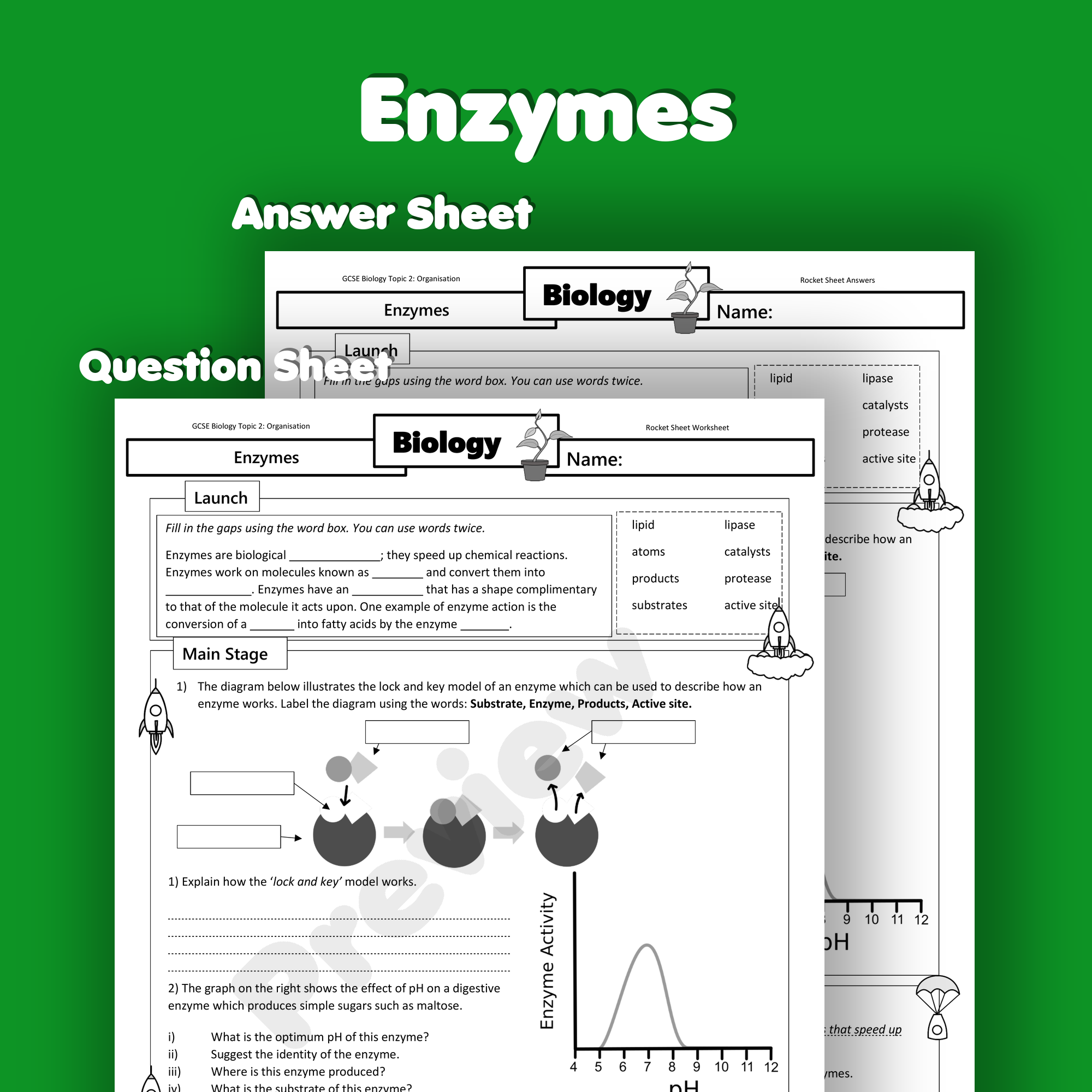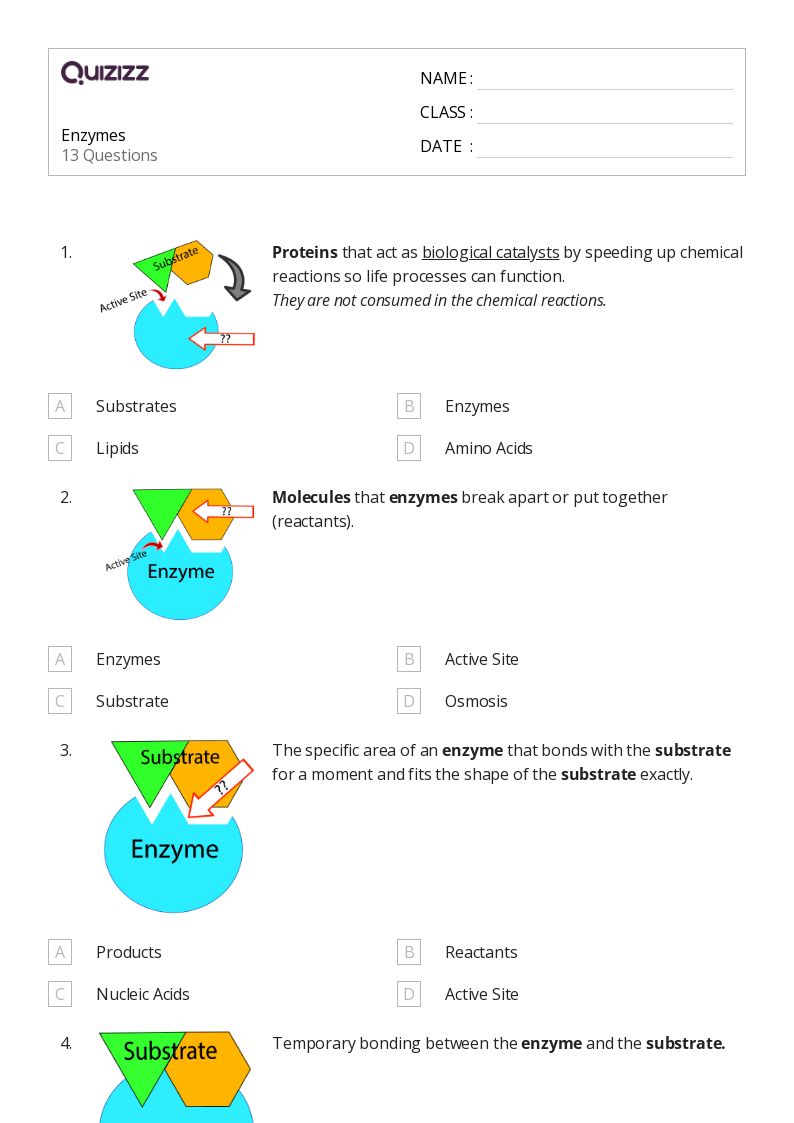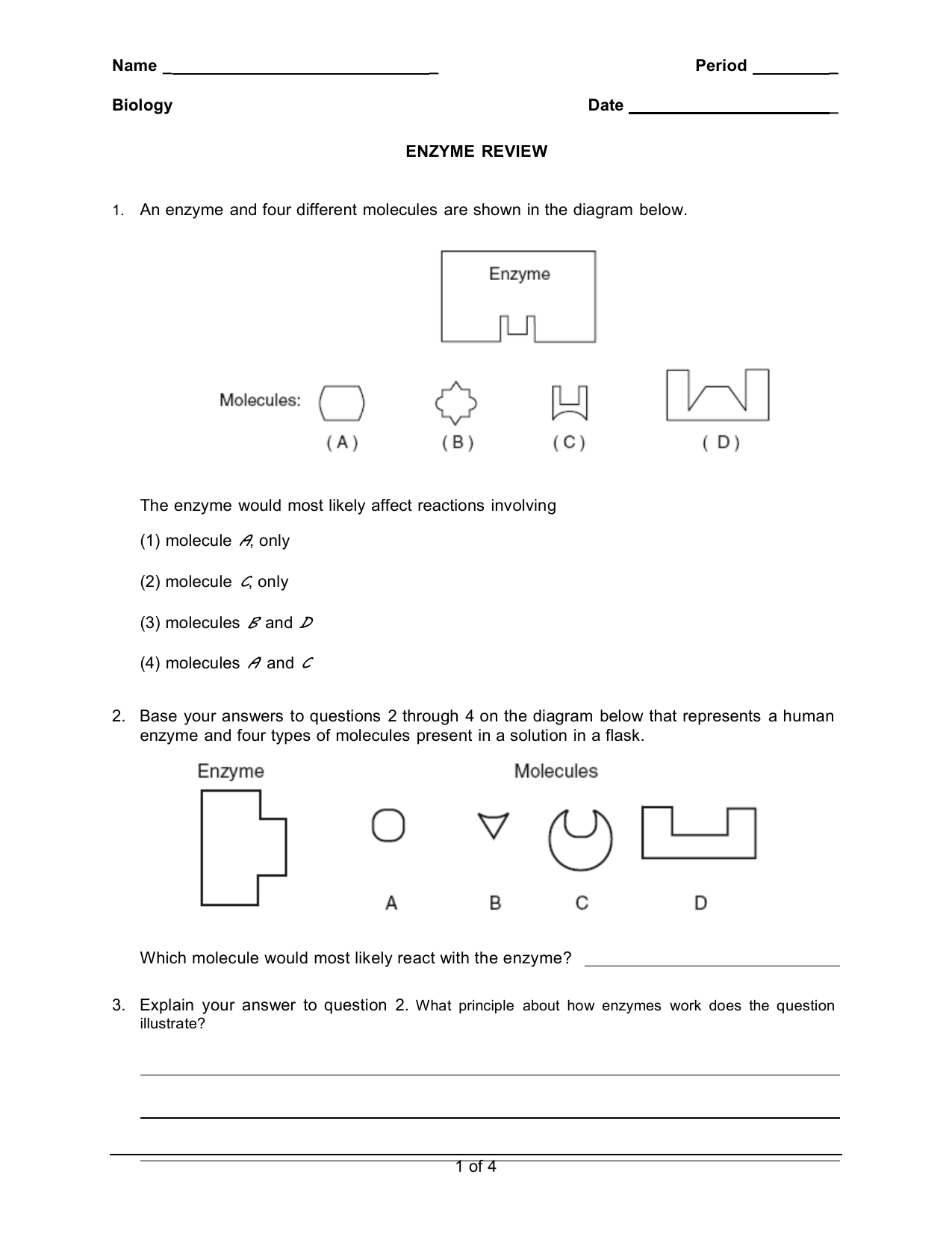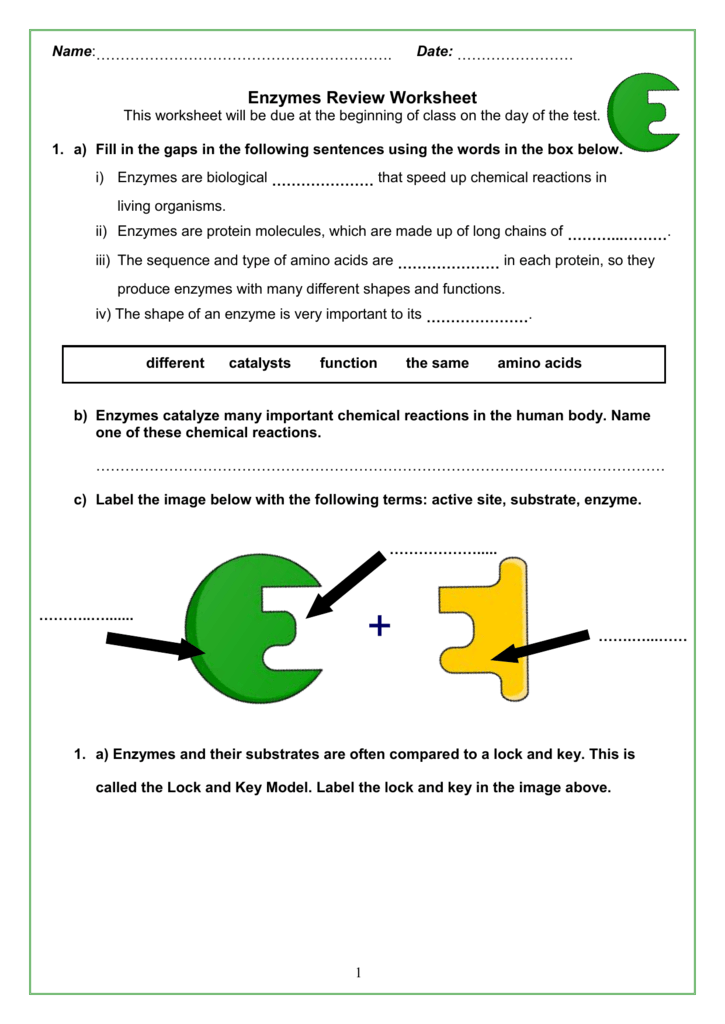Enzymes Review Worksheet - How does the “lock and key” theory of enzyme action differ from the “induced fit” theory? Name one of these chemical reactions. Use diagrams to help your explanation. Each answer will only be used once. I) enzymes are biological.……………… that speed up chemical reactions in living organisms. Explore the fascinating world of enzymes with our free printable science worksheets. Nad+) that help enzymes to catalyze reactions or carry electrons, hydrogen, or functional groups stripped from. Enzymes catalyze many important chemical reactions in the human body. Ii) enzymes are protein molecules, which are made up of long. Discover their functions, importance, and role in various.
How does the “lock and key” theory of enzyme action differ from the “induced fit” theory? Explore the fascinating world of enzymes with our free printable science worksheets. Enzymes catalyze many important chemical reactions in the human body. Use diagrams to help your explanation. I) enzymes are biological.……………… that speed up chemical reactions in living organisms. Discover their functions, importance, and role in various. Nad+) that help enzymes to catalyze reactions or carry electrons, hydrogen, or functional groups stripped from. Ii) enzymes are protein molecules, which are made up of long. Each answer will only be used once. Name one of these chemical reactions.
Discover their functions, importance, and role in various. Each answer will only be used once. I) enzymes are biological.……………… that speed up chemical reactions in living organisms. Ii) enzymes are protein molecules, which are made up of long. Enzymes catalyze many important chemical reactions in the human body. Explore the fascinating world of enzymes with our free printable science worksheets. Name one of these chemical reactions. How does the “lock and key” theory of enzyme action differ from the “induced fit” theory? Nad+) that help enzymes to catalyze reactions or carry electrons, hydrogen, or functional groups stripped from. Use diagrams to help your explanation.
Enzymes Worksheets Made By Teachers
Name one of these chemical reactions. How does the “lock and key” theory of enzyme action differ from the “induced fit” theory? I) enzymes are biological.……………… that speed up chemical reactions in living organisms. Ii) enzymes are protein molecules, which are made up of long. Enzymes catalyze many important chemical reactions in the human body.
Enzymes Review Worksheet
Each answer will only be used once. Nad+) that help enzymes to catalyze reactions or carry electrons, hydrogen, or functional groups stripped from. Discover their functions, importance, and role in various. How does the “lock and key” theory of enzyme action differ from the “induced fit” theory? I) enzymes are biological.……………… that speed up chemical reactions in living organisms.
20++ Enzymes Review Worksheet Worksheets Decoomo
Ii) enzymes are protein molecules, which are made up of long. Name one of these chemical reactions. Use diagrams to help your explanation. Explore the fascinating world of enzymes with our free printable science worksheets. Each answer will only be used once.
Enzymes Home Learning Worksheet GCSE rocketsheets.co.uk
How does the “lock and key” theory of enzyme action differ from the “induced fit” theory? Each answer will only be used once. Explore the fascinating world of enzymes with our free printable science worksheets. Enzymes catalyze many important chemical reactions in the human body. Use diagrams to help your explanation.
Free Printable Enzyme Worksheets for Students
Name one of these chemical reactions. Explore the fascinating world of enzymes with our free printable science worksheets. I) enzymes are biological.……………… that speed up chemical reactions in living organisms. Discover their functions, importance, and role in various. Ii) enzymes are protein molecules, which are made up of long.
Enzyme Review Worksheet Answers Enzymes Practice Questions 1 Pdf Free
Explore the fascinating world of enzymes with our free printable science worksheets. Use diagrams to help your explanation. Enzymes catalyze many important chemical reactions in the human body. Each answer will only be used once. Nad+) that help enzymes to catalyze reactions or carry electrons, hydrogen, or functional groups stripped from.
50+ enzymes worksheets for 9th Year on Quizizz Free & Printable
How does the “lock and key” theory of enzyme action differ from the “induced fit” theory? Ii) enzymes are protein molecules, which are made up of long. Explore the fascinating world of enzymes with our free printable science worksheets. Discover their functions, importance, and role in various. Name one of these chemical reactions.
2e Enzyme Review worksheet (1)
Use diagrams to help your explanation. Enzymes catalyze many important chemical reactions in the human body. How does the “lock and key” theory of enzyme action differ from the “induced fit” theory? Name one of these chemical reactions. I) enzymes are biological.……………… that speed up chemical reactions in living organisms.
Enzyme Review Worksheet Answers
Explore the fascinating world of enzymes with our free printable science worksheets. Name one of these chemical reactions. Use diagrams to help your explanation. Nad+) that help enzymes to catalyze reactions or carry electrons, hydrogen, or functional groups stripped from. How does the “lock and key” theory of enzyme action differ from the “induced fit” theory?
I) Enzymes Are Biological.……………… That Speed Up Chemical Reactions In Living Organisms.
Each answer will only be used once. Enzymes catalyze many important chemical reactions in the human body. Explore the fascinating world of enzymes with our free printable science worksheets. Name one of these chemical reactions.
Ii) Enzymes Are Protein Molecules, Which Are Made Up Of Long.
Discover their functions, importance, and role in various. Nad+) that help enzymes to catalyze reactions or carry electrons, hydrogen, or functional groups stripped from. Use diagrams to help your explanation. How does the “lock and key” theory of enzyme action differ from the “induced fit” theory?







